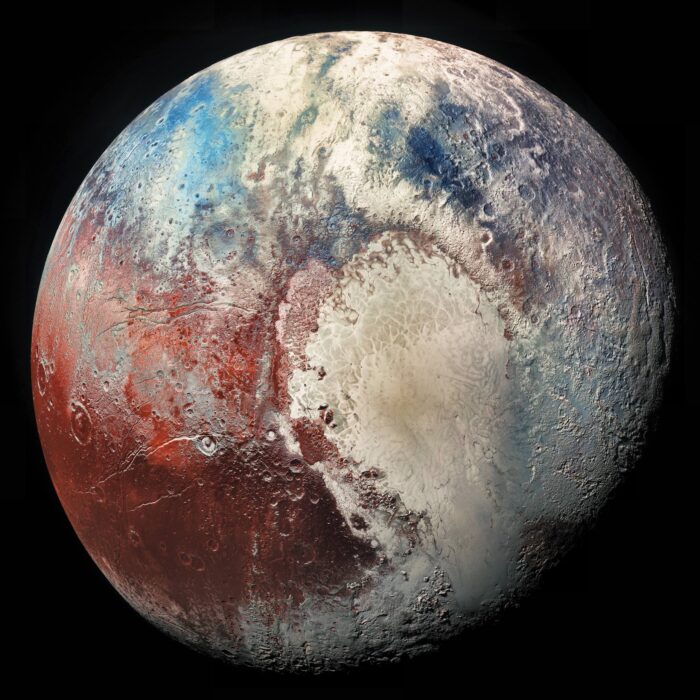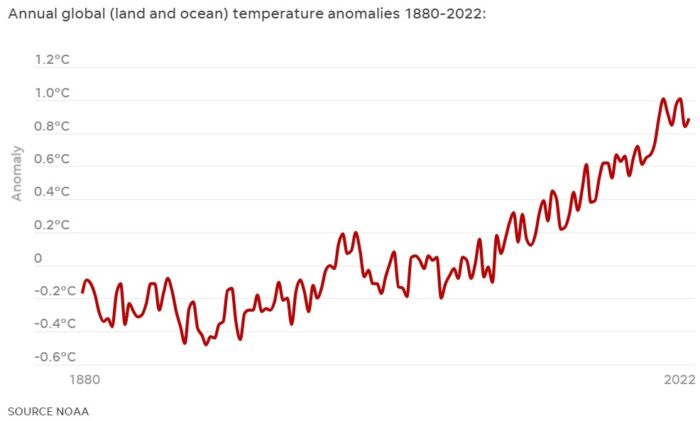Jan
08
2024
 Categorization is critical in science, but it is also very tricky, often deceptively so. We need to categorize things to help us organize our knowledge, to understand how things work and relate to each other, and to communicate efficiently and precisely. But categorization can also be a hindrance – if we get it wrong, it can bias or constrain our thinking. The problem is that nature rarely cleaves in straight clean lines. Nature is messy and complicated, almost as if it is trying to defy our arrogant attempts at labeling it. Let’s talk a bit about how we categorize things, how it can go wrong, and why it matters.
Categorization is critical in science, but it is also very tricky, often deceptively so. We need to categorize things to help us organize our knowledge, to understand how things work and relate to each other, and to communicate efficiently and precisely. But categorization can also be a hindrance – if we get it wrong, it can bias or constrain our thinking. The problem is that nature rarely cleaves in straight clean lines. Nature is messy and complicated, almost as if it is trying to defy our arrogant attempts at labeling it. Let’s talk a bit about how we categorize things, how it can go wrong, and why it matters.
We can start with an example that might seem like a simple category – what is a planet? Of course, any science nerd knows how contentious the definition of a planet can be, which is why it is a good example. Astronomers first defined them as wandering stars – the points of light that were not fixed but seemed to wonder throughout the sky. There was something different about them. This is often how categories begin – we observe a phenomenon we cannot explain and so the phenomenon is the category. This is very common in medicine. We observe a set of signs and symptoms that seem to cluster together, and we give it a label. But once we had a more evolved idea about the structure of the universe, and we knew that there are stars and stars have lots of stuff orbiting around them, we needed a clean way to divide all that stuff into different categories. One of those categories is “planet”. But how do we define planet in an objective, intuitive, and scientifically useful way?
This is where the concept of “defining characteristic” comes in. A defining characteristic is, “A property held by all members of a class of object that is so distinctive that it is sufficient to determine membership in that class. A property that defines that which possesses it.” But not all categories have a clear defining characteristic, and for many categories a single characteristic will never suffice. Scientists can and do argue about which characteristics to include as defining, which are more important, and how to police the boundaries of that characteristic.
Continue Reading »
Jan
04
2024
 This is one of the biggest thought experiments in science today – as we look for life elsewhere in the universe, what should we be looking for, exactly? Other stellar systems are too far away to examine directly, and even our most powerful telescopes can only resolve points of light. So how do we tell if there is life on a distant exoplanet? Also, how could we detect a distant technological civilization?
This is one of the biggest thought experiments in science today – as we look for life elsewhere in the universe, what should we be looking for, exactly? Other stellar systems are too far away to examine directly, and even our most powerful telescopes can only resolve points of light. So how do we tell if there is life on a distant exoplanet? Also, how could we detect a distant technological civilization?
Here is where the thought experiment comes in. We know what life on Earth is like, and we know what human technology is like, so obviously we can search for other examples of what we already know. But the question is – how might life different from life on Earth be detected? What are the possible signatures of a planet covered in living things that perhaps look nothing like life on Earth. Similarly, what alien technologies might theoretically exist, and how could we detect them?
A recent paper explores this question from one particular angle – are there conditions on a planet that are necessary for the development of technology? They hypothesize that there is an “oxygen bottleneck”, a minimum concentration of oxygen in the atmosphere of a planet, that is necessary for the development of advanced technology. Specifically they argue that open air combustion, which requires a partial pressure (PO2) of oxygen of ≥ 18% (it’s about 21% on Earth), is necessary for fire and metallurgy, and that these are necessary stepping stones on the path to advanced technology.
Continue Reading »
Jan
02
2024
 What everyone knew was coming is now official – 2023 was the warmest year on record. This means we can also say that the last 10 years are the hottest decade on record. 2023 dethrones 2016 as the previous warmest year and bumps 2010 out of the top 10. Further, in the last half of the year, many of the months were the hottest months on record, and by a large margin. September’s average temperature was 1.44 C above pre-industrial levels, beating the previous record set in 2020 of 0.98 C. The average for 2023 is 1.4 C, beating the previous record in 2016 of 1.2 C. This also makes 2023 probably the warmest year in the last 125,000 years.
What everyone knew was coming is now official – 2023 was the warmest year on record. This means we can also say that the last 10 years are the hottest decade on record. 2023 dethrones 2016 as the previous warmest year and bumps 2010 out of the top 10. Further, in the last half of the year, many of the months were the hottest months on record, and by a large margin. September’s average temperature was 1.44 C above pre-industrial levels, beating the previous record set in 2020 of 0.98 C. The average for 2023 is 1.4 C, beating the previous record in 2016 of 1.2 C. This also makes 2023 probably the warmest year in the last 125,000 years.
There is no mystery as to why this is happening, and it’s exactly what scientists predicted would happen. Remember the global warming “pause” that was allegedly happening between 1998 and 2012? This was the pause that never was, a short term fluctuation in the long term trend and a bit of statistical voodoo. Global warming deniers were declaring that global warming was over, it was never real, it was just a statistical fluke and the world was regressing back to the mean. Meanwhile, scientists said the long term trend had not altered and predicted the next decade would be even warmer. In retrospect, it turns out that during the alleged “pause” more heat was going into the oceans and was not fully reflected in surface temperatures.
The best test of a scientific hypothesis is its ability to make predictions about future data. The deniers were predicting that the Earth would simply return to baseline temperatures, while the scientific community were united in predicting that the next decade (now the past decade) would see continued warming.
Continue Reading »
 Categorization is critical in science, but it is also very tricky, often deceptively so. We need to categorize things to help us organize our knowledge, to understand how things work and relate to each other, and to communicate efficiently and precisely. But categorization can also be a hindrance – if we get it wrong, it can bias or constrain our thinking. The problem is that nature rarely cleaves in straight clean lines. Nature is messy and complicated, almost as if it is trying to defy our arrogant attempts at labeling it. Let’s talk a bit about how we categorize things, how it can go wrong, and why it matters.
Categorization is critical in science, but it is also very tricky, often deceptively so. We need to categorize things to help us organize our knowledge, to understand how things work and relate to each other, and to communicate efficiently and precisely. But categorization can also be a hindrance – if we get it wrong, it can bias or constrain our thinking. The problem is that nature rarely cleaves in straight clean lines. Nature is messy and complicated, almost as if it is trying to defy our arrogant attempts at labeling it. Let’s talk a bit about how we categorize things, how it can go wrong, and why it matters.
 This is one of the biggest thought experiments in science today – as we look for life elsewhere in the universe, what should we be looking for, exactly? Other stellar systems are too far away to examine directly, and even our most powerful telescopes can only resolve points of light. So how do we tell if there is life on a distant exoplanet? Also, how could we detect a distant technological civilization?
This is one of the biggest thought experiments in science today – as we look for life elsewhere in the universe, what should we be looking for, exactly? Other stellar systems are too far away to examine directly, and even our most powerful telescopes can only resolve points of light. So how do we tell if there is life on a distant exoplanet? Also, how could we detect a distant technological civilization? What everyone knew was coming is now official – 2023 was the warmest year on record. This means we can also say that the last 10 years are the
What everyone knew was coming is now official – 2023 was the warmest year on record. This means we can also say that the last 10 years are the 




